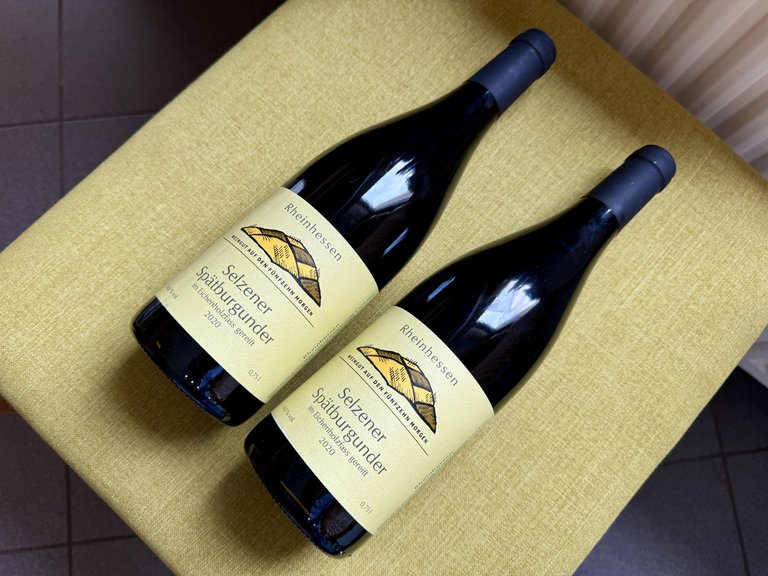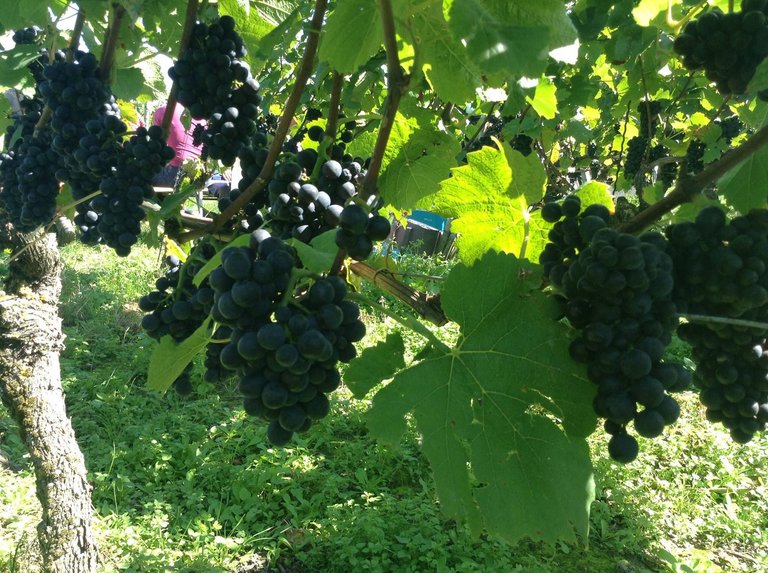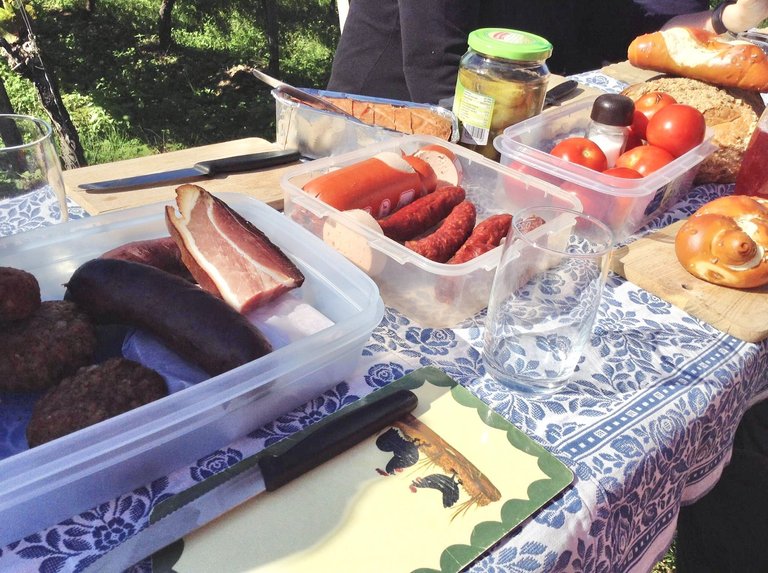
Recently, I traveled to Hesse to visit a friend who owns a vineyard. It was such an enjoyable trip, and I shared the experience on Hive Blog yesterday in my post to @worldmappin.
Visiting Wine Region in Hessen, Germany
On the way back, I opened YouTube, and a video about the dark side of the French Champagne industry popped up in the recommendation list. I thought it was quite a coincidence and started watching it (excuse me, it's in Japanese language).
Curious to know more, I searched for some articles, and a few from 2023 came up. While these may not necessarily reflect the current state, it seems the problems with manual grape harvesting and unfair wages for workers haven’t changed much. Despite the lack of big price fluctuations in the wine market, these issues still persist.
'We're not slaves': Champagne's seasonal harvesters face abuse
The Champagne region is world-renowned for producing high-end sparkling wine. However, behind the glamorous image, there are serious concerns about the exploitation of migrant and seasonal workers. After learning about this, I felt disheartened, especially since I used to occasionally splurge on Champagne for small celebrations.
As a general rule, I try to buy food and drinks (also clothes) that are sustainable to people, animals, and the environment. The same should apply to what I drink. No matter how delicious or prestigious a drink is, I don’t want to support one that is built on the suffering of others.
Fortunately, there are many great wines in the world. Recently, we visited a vineyard owned by a friend, and before that, we helped harvest grapes at my partner’s relative’s vineyard. Locals were helping each other and the work environment was peaceful.


I’d much rather buy wine that’s produced like this—where I know it’s made ethically and with care. Even if you don’t know the producer personally, organic shops also offer excellent wines.
Thinking about it, how are wines priced at €2 or €3 made? Growing, harvesting, processing, bottling, storing, distributing… there are so many steps involved, and each costs money. While I’m sure there are efforts to keep prices low, I can’t help but feel that somewhere along the way, someone must be getting squeezed.
This morning, while planting bulbs on my balcony, the wine I ordered from the winery we visited arrived. It’s a beautiful Pinot Noir, with a delightful hint of oak from the barrels. I plan to savor it slowly during the cold months ahead.
Wine production is often associated with tradition, culture, and regional pride, which is part of its charm—and why I love wine. But learning about the exploitation in the Champagne region made me realize how important it is to think about the real conditions behind the scenes. What do you think?
For me, autumn and winter are wine seasons. Similar to how I enjoy "Beer Saturday," I’d like to explore the background of the wines I drink a bit more this autumn/winter.

先日、ワイン畑を持っている友人を訪ねてヘッセン州に旅行しました。地域のワインを堪能する楽しい旅になったことは昨日 @worldmappin に投稿しました。
その帰り道に、YouTubeを開くと、フランスのシャンパン業界の闇についてふれた動画が推薦され、なんとも偶然だなと思って動画を見始めました。
もう少し詳しく知りたくて探してみると、活字の記事もいくつか出てきました。いずれも2023年のもので、必ずしも現状を報道しているかは定かではありませんが、手作業でぶどうをつむ作業が一年で劇的に楽になるわけではなく、ワインの価格に大幅な変動もみられず、未だこのような問題はあるのでしょう。
移民労働者は、シャンパーニュのブドウ畑の不潔さと搾取を説明する | フランスニュースのアンテンヌフランス | 毎日更新する日本最大級のフランスニュースサイト
シャンパーニュ地方は高級スパークリングワインの生産地として世界的に有名ですが、その華やかさの裏側には、収穫に携わる移民や季節労働者の過酷な待遇や不十分な賃金が問題視されることがあるようです。この搾取の問題を知って、世界でもてはやされるシャンパンに、ちょっとしたお祝いには奮発してシャンパンを買っていた私自身にもげんなりしました。
一般的な食品を買うときの指針として、なるべく人にも動物にも環境にもやさしいものを買うことにしていて、飲み物についても同じポリシーを保ちたいです。いくらおいしい、プレスティージアスな飲み物とされていても、人の犠牲の上に成り立っている飲み物をサポートしたくないと思いました。
でも世の中にはいいワインもあります。うちの相方の親戚にワインのぶどうの収穫をさせてもらって、先日は友人のワイン畑や、そのぶどうを加工しているワイナリーを訪ねて、平和に作られているワインがあることも知りました。こういうふうに作られたワインを買いたい、気持ちよくおいしく飲めると思うのです。直接生産者を知らなくてもオーガニックショップのワインもあります。


よくよく考えてみると、小売価格が2ユーロ、3ユーロのワインってどうやって作っているのでしょう。ブドウの栽培、収穫、加工、瓶詰め、保管、流通・・・・・・さまざまなプロセスがあって、費用がかかって、もちろん企業努力はあると思いますが、どこかにしわよせが入っている気がしてなりません。
今朝、バルコニーで球根を植えていたら、先日見学させてもらったワイナリーに注文していたワインが届きました。ピノノワールのワインに樫の樽の香りが移ったうっとりするような味の赤ワインで、これからの寒い日に大事に飲もうと思います。
ワイン作りというと伝統や文化、地域性が強調されて、そこがワインのいいところで、私も大好きです。でも、今回、シャンパーニュ地方での搾取問題を知り、現実の労働やその条件のギャップについて考えるのはとても大事だと思いました。みなさんは、どう思いますか?
私にとって、秋冬はワインのシーズンです。ビアサタデーではないですが、今年はもう少しワインの背景を深掘りしながら楽しみたいと思います。そしていつか友人のように自分のワインを作れるようになったらいいなと夢見ています。
@tipu curate
Upvoted 👌 (Mana: 32/62) Liquid rewards.
Thanks @mrspointm & @tipu!